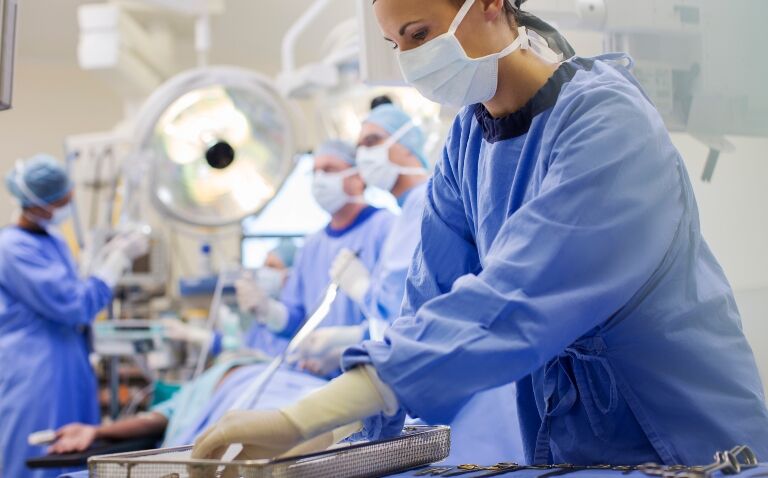Surgeons in the UK lose an average of four working hours a week – equal to one working month a year – due to inefficient technology, according to a new survey by Censuswide on behalf of Medtronic.
The ‘State of Surgery in the UK’ survey explored surgeons’ attitudes towards the technologies they use in their role, the efficiency of them and the degree to which they enhance or hinder performance.
Some 79% of the 300 respondents said surgical care would be easier to deliver if technology was improved, and 58% agreed that technology in the operating room is inefficient and could impact the delivery of patient care.
In addition, 54% of surgeons reported spending time outside of hospital hours on administration that could be automated, and 56% of surgeons agreed time spent on administrative and logistical tasks could be reduced with better technology, which could free them up to focus on upskilling themselves and their team in other areas.
Commenting on the findings, Professor Sanjay Purkayastha, consultant upper GI and bariatric surgeon at Imperial College, NHS Healthcare Trust, and honorary professor at Brunel University, said: ‘The survey results reflect a challenge that many of us in the surgical community know all too well. For many surgeons, the lack of adequate technological support throughout the patient pathway leaves the surgical team perpetually short on time. Time that could be used on crucial analysis and training. An upgrade in the technologies available to surgeons is long overdue.
‘The enhanced efficiency and accuracy we gain from a more integrated and intelligent operating room are undeniable. In surgery, the benefits of being proactive, rather than reactive, are critical to maintaining a high quality of care. Digital technologies will be key to sustaining this. Unfortunately, these benefits remain out of reach for far too many in our field.’
Professor Naeem Soomro, consultant urological surgeon at Newcastle’s Freeman Hospital and Royal College of Surgeons Council member, added: ‘These findings validate and mirror our own research highlighting that the future of surgery lies in more forward-facing digital solutions. Robotics, data and artificial intelligence will allow the NHS to respond to current challenges around access, safety and sustainability of healthcare.’
The future of robotic assisted surgery
This comes as the Royal College of Surgeons of England published a new guide covering some of the challenges – such as accessibility, variable outcomes and possible patient harm – and benefits of robotic surgery, including greater precision, freeing up hospital beds and improving patient recovery.
The guide, ‘Robotic assisted surgery: A pathway to the future’, also looks at the potential future application of robotics and makes recommendations to encourage sound governance practices that can lead to the safe adoption and expansion of robotic surgery in UK hospitals.
It proposes a structured pathway for established surgeons who want to transition to robotic-assisted surgery and identifies the relevant roles and responsibilities of key stakeholders for ensuring and maintaining safe autonomous practice in robotic surgery.
Nuha Yassin, consultant colorectal surgeon, robotics and minimally invasive surgery and RCS England Council lead for the future of surgery, robotics and digital surgery, said: ‘This timely new guidance will support the safe and structured introduction of robotic assisted surgery – and the fruitful collaboration between hospitals, surgeons and industry. It’s important for the surgical profession, led by RCS England, in collaboration with the surgical speciality associations, to take charge of all processes, accredit training centres and pathways and facilitate equity in access and training.
‘To benefit from the potential advantages, any investment in purchasing robots needs to be accompanied by proper planning for its introduction into the service with a focus on training, quality assurance and efficiency. This also needs to acknowledge the variable learning curve which can be long for some surgeons and theatre teams before these efficiencies can be observed at a large scale.’










